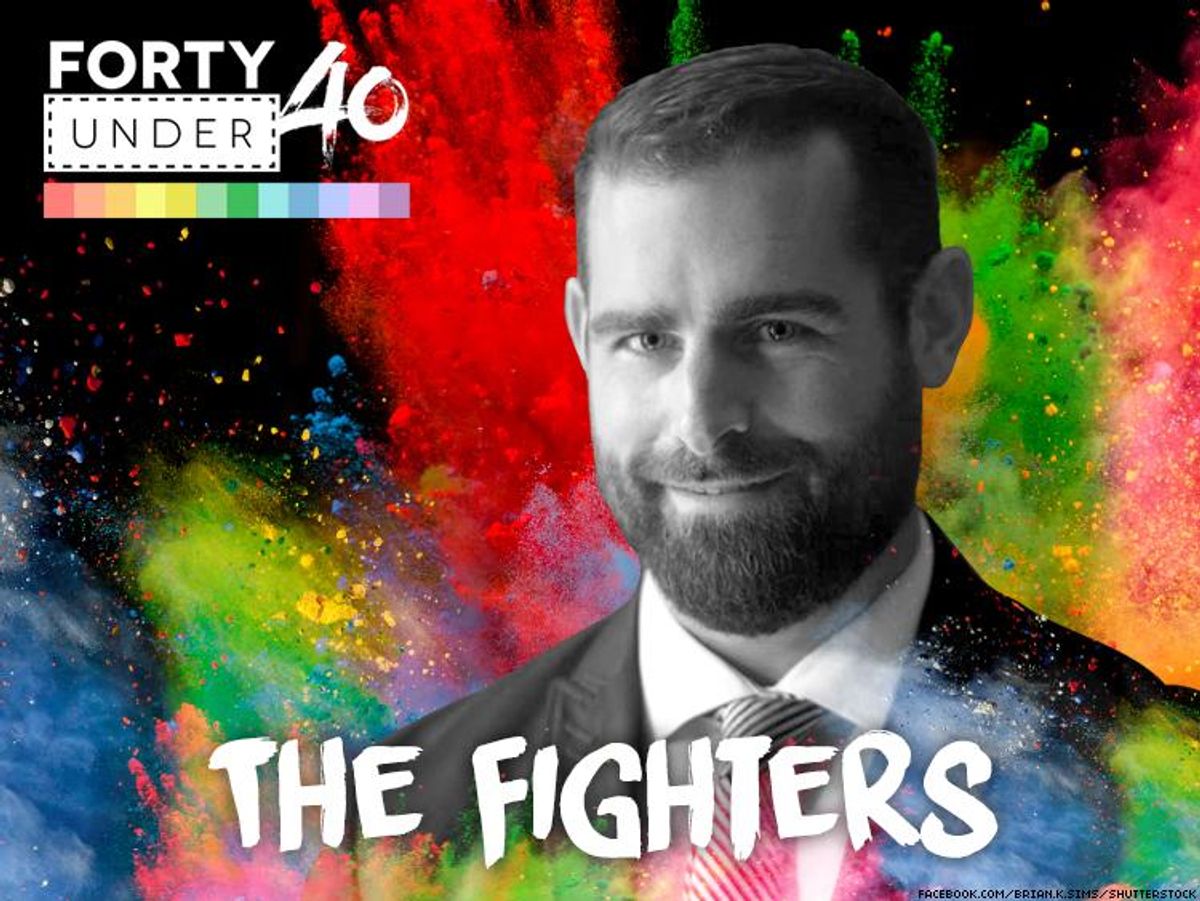The women's rights movement found an unlikely hero with Brian Sims, a 37-year-old former college football star and Pennsylvania's first out gay state legislator. Sims has made LGBT rights a cornerstone of his time in Harrisburg -- and his current candidacy for the U.S. House -- but pay equity and reproductive rights are shaping up to be his true political legacy.
Elected in 2012, Sims regularly fights for Planned Parenthood funding in a state where it's constantly under assault. Partly for his work fighting a bill that would have restricted insurance coverage for abortions, Sims was honored last year with the Champion of Choice award from NARAL, a national pro-choice group.
Sims remembers standing on the House floor two years ago to blast the anti-abortion legislation (which ultimately passed). It was there that he uttered his famous line: "Each of us put our hand on the Bible and swore to uphold the Constitution. We did not place our hands on the Constitution and swear to uphold the Bible."
Male privilege became glaring to Sims during that debate on the House floor.
"For all the fighting that I do for LGBT equality, I never have to question the sanctity of my own body," he says. "This colleague of mine, the first time she took to the House floor to advocate [against this bill] she didn't get the opportunity just on behalf of her own constituents, she had to do it on behalf of her own physical body."
Sims served in the Women's Health Caucus during his first years in office, advocating for workplace accommodations for pregnant women, increased eligibility for breast and cervical cancer screenings, and additional funding for domestic violence victims. Sims also introduced a bill last year that would make it harder for employers to punish those who bring forward pay-equity lawsuits.
Previously, a lawyer and board member for Equality Pennsylvania, Sims has a rare ability -- for a politician, at least -- to see outside his own experiences and connect the struggles of all.
"I find it very difficult to see how someone could support LGBT civil rights -- the idea that we get to be in charge of ourselves, our lives, who we love, how we love, and not the government --and not support women's and reproductive rights," he says. "Not only do LGBT rights and women's rights go hand in hand, I feel similarly about racial and ethnic justice issues. This is about equality in a larger sense, but it's also about to what degree do you believe the government should have control of your life."



















































































